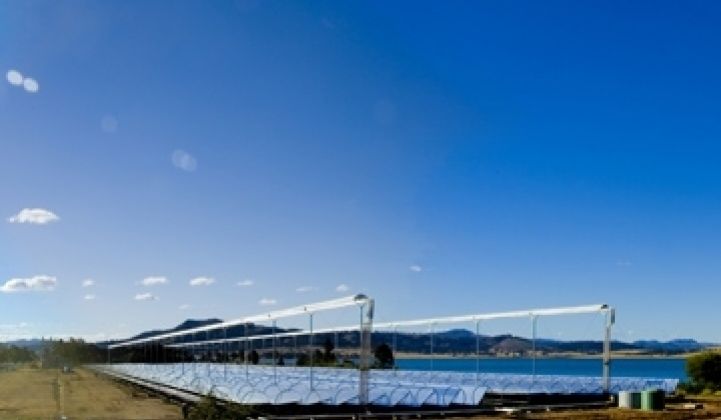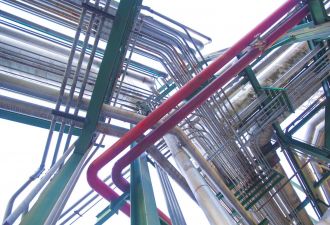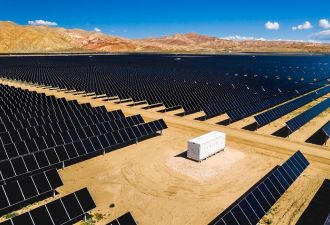Areva, the swarming energy conglomerate, has won the bidding war and purchased Ausra, the solar thermal specialist.
Two other conglomerates had been bidding on the company, according to sources. One of them, however, was likely not Siemens. Siemens bought rival Solel for $418 million last year.
Like many Silicon Valley-funded startups, Ausra came up with a novel idea for harnessing clean power, but has lacked the money, engineering and contracts to fully test it out or take it commercial. The company, which raised over $115 million from firms such as Kleiner Perkins, wanted to replace the expensive parabolic mirrors at solar thermal power plants with cheaper flat mirrors. At one point, the company theorized -- as a way to illustrate the power of solar thermal technology -- that it could conceivably harvest all of the electrical power the U.S. would need from a hypothetical plot of desert real estate measuring 92 miles by 92 miles.
Unfortunately, it never got a chance to start testing that idea out on a large scale. PG&E, Southern California Edison and the other big California utilities awarded their largest solar thermal projects to competitors such as BrightSource Energy and Stirling Energy Systems. Speculation -– never substantiated -– circulated in the solar industry that Ausra's equipment could not provide the same level of power as that offered by other competitors.
In February of 2009, the company shifted directions. It largely abandoned its earlier plans to build and operate solar thermal power plants. Instead, it would sell equipment to large companies would would operate the power plants. PG&E actually earlier gave Ausra a contract to build a 177-megawatt plant and Ausra talked about it as a long term goal, even after it shifted its business plan to concentrate on industrial steam equipment. But last November, Ausra sold the land to the project to a developer of solar panels.
Power plants "are way beyond" the capabilities of a start-up, said CEO Bob Fishman.
Fishman's words in early 2009 proved prophetic: conglomerates are coming into the market as the start-ups try to navigate the financial and logistical issues of the market. Rival eSolar, which has a similar system, backed away from its plans to build power plants. The company now licenses its technology. ESolar still talks about building power plants, but its main activities now are wrapped around getting Indian and Chinese conglomerates the tools to build their own solar thermal power plants.
Meanwhile, BrightSource Energy, arguably the most successful solar thermal start-up so far, had to sell part of its big power plant in California to Bechtel, which will help build it.
Conglomerate-itis. It's catching.
Areva, by the way, knows quite a bit about financing and planning large projects. It's the world's biggest nuclear company.



